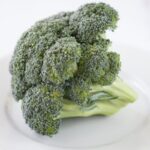What Are the Best Hydration Tips for Older Adults
Staying hydrated is critical for overall health, especially for older adults. As we age, our bodies undergo various changes that can affect our fluid balance and hydration levels. Factors such as decreased thirst sensation, medications, and certain health conditions can contribute to a higher risk of dehydration. Therefore, understanding effective hydration strategies is essential for maintaining physical and cognitive well-being.
Recognize the Signs of Dehydration
Older adults must be aware of the signs of dehydration, which can sometimes be subtle. Common symptoms include dry mouth, fatigue, dizziness, and dark-colored urine. Additionally, confusion or disorientation can signal that hydration levels are too low. Monitoring these symptoms is crucial because older adults may not always feel thirsty, even when their bodies require fluids. Keeping a close eye on hydration status can help prevent more severe health issues down the line.
Incorporate Hydrating Foods
Hydration doesn’t solely come from drinking water. Many fruits and vegetables have high water content and can contribute to overall fluid intake. Watermelon, cucumbers, oranges, and strawberries are excellent choices. Incorporating these hydrating foods into daily meals not only helps with hydration but also provides essential vitamins and minerals. Preparing salads, smoothies, or soups can make these foods more appealing and enjoyable.
Set Regular Reminders
Creating a routine around hydration can help older adults remember to drink fluids regularly. Setting reminders on a smartphone, using a calendar, or placing sticky notes in visible places can prompt individuals to take a sip. It can also be helpful to establish specific times to drink water, such as before meals or after taking medications. Consistency is key to maintaining adequate hydration levels.
Choose Hydration-Friendly Beverages
While water is the best choice for hydration, older adults can also explore other beverages that contribute to fluid intake. Herbal teas, flavored water, and low-sodium broths can be refreshing alternatives. However, it’s important to be cautious with caffeinated or alcoholic drinks, as they can have diuretic effects that may lead to increased fluid loss. Opting for beverages that hydrate rather than dehydrate can ensure that fluid balance is maintained.
Utilize Easy Access to Water
Having easy access to water can significantly improve hydration habits. Keeping a water bottle or glass filled and within reach can serve as a constant reminder to drink. Placing multiple water stations around the home, such as in the kitchen, living room, or bedside, can eliminate barriers to hydration. Older adults may also benefit from using cups with straws, which can make drinking easier and more enjoyable.
Involve Family and Friends
Encouraging family members or friends to participate in hydration efforts can create a supportive environment. Social gatherings can include hydration-focused activities, such as sharing recipes for healthy smoothies or enjoying a refreshing drink together. Having someone to remind or encourage hydration can significantly improve fluid intake, making it a communal effort rather than an individual task.
Monitor Medications
Certain medications can increase the risk of dehydration by affecting fluid balance or increasing urination. Older adults should consult with their healthcare providers to understand how their medications may impact hydration and discuss any necessary adjustments. It’s essential to stay informed about the potential side effects of medications and to proactively manage hydration needs accordingly.
Stay Active
Physical activity also plays a role in hydration. Older adults who engage in regular, moderate exercise tend to have better hydration levels. However, it’s vital to drink fluids before, during, and after exercise to replenish lost water. Activities like walking, stretching, or gentle yoga can enhance circulation and promote overall health while supporting hydration efforts.
Strategies for Better Hydration Habits
To wrap up, staying hydrated is a vital aspect of health for older adults. By recognizing the signs of dehydration, incorporating hydrating foods, setting reminders, choosing appropriate beverages, making water accessible, involving loved ones, monitoring medications, and staying active, older adults can effectively maintain hydration levels. In doing so, they support not only their physical health but also their cognitive function and overall quality of life. Prioritizing hydration is a simple yet effective way to enhance well-being in the golden years.


